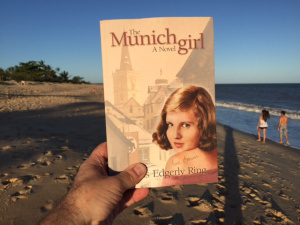Phyllis Edgerly Ring's Blog, page 17
March 31, 2016
The gifts of fear
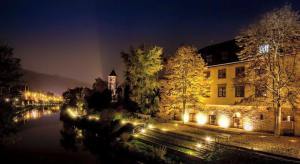 Fear can be instructive when I experience it, though I’m not meant to dwell on it, or in it.
Fear can be instructive when I experience it, though I’m not meant to dwell on it, or in it.
If I understand the inner signals of fear, whose purpose is to educate and inform me, I can choose to make the necessary adjustments in belief and behavior that will prevent for me the unhealthy and painful mental state of being consumed by that fear.
Most often, that state seems one of attempting to avoid the fear, rather than meeting it and receiving what it has to reveal.
 In the physical world, a fear signal is often a potentially life-saving reaction that prompts me to move quickly out the way of harm to my physical self. In spiritual terms, I can also experience triggers of fear that point to what could pose danger to my own true and most enduring reality. This signal often arises when I cross the line of moderation and form an attachment to some aspect of the material world.
In the physical world, a fear signal is often a potentially life-saving reaction that prompts me to move quickly out the way of harm to my physical self. In spiritual terms, I can also experience triggers of fear that point to what could pose danger to my own true and most enduring reality. This signal often arises when I cross the line of moderation and form an attachment to some aspect of the material world.
For every worldly attachment I make, I can gain an unhealthy fear, then easily become overwhelmed by such fears. The remedy, detachment, is in refraining from allowing my physical possessions, the things I do, the things I think, feel, believe, to possess me. For these are what perish.
 The heart, it seems, is never at rest and never finds real joy and happiness until it attaches itself to the eternal, to what does not perish.
The heart, it seems, is never at rest and never finds real joy and happiness until it attaches itself to the eternal, to what does not perish.
Adapted from With Thine Own Eyes: Why Imitate the Past, When We Can Investigate Reality?:


March 28, 2016
Patience: time to dream of how the light will feel

Photo: David Campbell / GBCTours.com
Our times, for all the unseeing blur of their speed, require patience, at the heart of it all.
Patience as a means, like a receptive channel, for Love to flow into, and through.
If any one particular wisdom seems to echo through these days, it is what New Hampshire poet Bob Moore conveys here.
This Guest Post is a Guest Poem, like a strong, sustaining infusion of light, for times when winds blow cold. A heart’s reminder of how our relations, the trees, teach us how to wait, to leave room for what the mystery in creation will quietly enter, and unfailingly fill with all that new beginnings need. 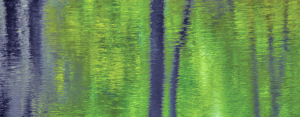
Patience
by Bob Moore
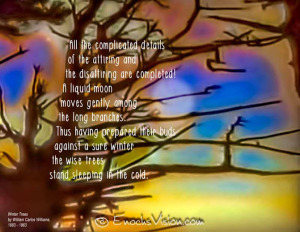
Image: enochsvision.com
The trees stood still. They knew enough to wait.
They knew that every season wasn’t great
for blooming, so they slowed down, and they dreamed
of what the light would feel like when it streamed
for hours in the warmth of a summer day.
When asked if they felt cold, they wouldn’t say.
But given the chance, they wore a coat of snow,
and waited for the length of days to grow.

Photo: David Campbell
They watched the squirrels and chipmunks fetch their meals,
but never spoke a word of how it feels
to while away the time and not complain,
or worry if the forest would sustain
their young, or fret about the need for room.
Instead, they held out for a chance to bloom.
Reading Bob’s words, I’m reminded of those of W.B. Yeats:
“The world is full of magic things, patiently waiting for our senses to grow sharper.”
Waiting for our inner and outer senses.


March 25, 2016
We’re finding our way, beyond war
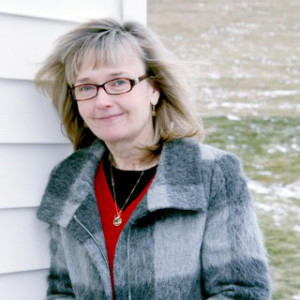
Book Club Mom Barb Vitelli – don’t miss her Read this, not that! blog
Book Club Mom Barb Vitelli had already been kind enough to feature me as an indie author at her blog last month.
Then she surprised me by fitting The Munich Girl into her busy reading schedule, and sharing very thoughtful reflections about it.
Barb has her own special connection with German culture, in a family history that includes relatives from the region of the Black Forest. They owned and operated a small hotel, restaurant, and bakery there, in a building that was bombed by Allied forces and then rebuilt after the war.
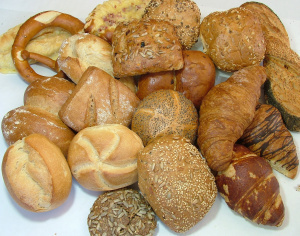 In her review of the book, Barb writes, “People choose their life paths for many reasons and their decisions are sometimes hard to figure. During wartime, many ordinary people become trapped on these paths, in situations that are bigger than themselves.”
In her review of the book, Barb writes, “People choose their life paths for many reasons and their decisions are sometimes hard to figure. During wartime, many ordinary people become trapped on these paths, in situations that are bigger than themselves.”
In these tumultuous days of our own, much of life can begin to feel something like wartime.
Yet our hearts can help each other remember there is so much more — real and enduring goodness — waiting for us to bring it forth into our world together. There is an important reality, what has been called “an atmosphere in which peace can emerge,” that begins with each one of us. 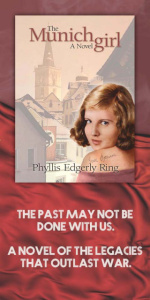
Overall, the intent of The Munich Girl is less about Eva Braun and what we may or may not think about her life and choices than it is about the very themes that Barb draws out. These invite us toward better prospects and possibilities, if we can find the collective will to work and learn our way toward them.
I thank every reader who is reading, sharing, responding to, reviewing, and introducing the novel to book groups, readers’ networks, and so many others.
So much is changing so fast in Europe, and our world. Yet you help me continue to trust that stories are a vital part of our connection, and our healing, our hope, and our power.
Find Barb’s review here: https://bvitelli2002.wordpress.com/2016/03/23/the-munich-girl-by-phyllis-edgerly-ring/


March 23, 2016
The water seeks the thirsty one

Photo: D. Kirkup Jewelry Designs
GLEANINGS FOUND HERE AND THERE:
Biding in a refuge of Rumi:
Don’t be sad! Because God sends hope in the most desperate moments.
Don’t forget, the heaviest rain comes out of the darkest clouds.
Our greatest strength lies in the gentleness and tenderness of our heart.
As you live Deeper in the Heart, the Mirror gets clearer and cleaner.

Photo: Lara Kearns
Surrender.
Be crumbled, so wild flowers will come up where you are.
You have been stony for too many years.
Try something different –
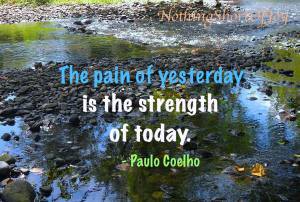
Image: http://www.nothingshortofjoy.com/
Surrender.
Not only the thirsty seek the water,
the water as well seeks the thirsty.
I open the window
and ask the moon to come and press its face against mine.
~ Rumi


March 18, 2016
“Local author” life
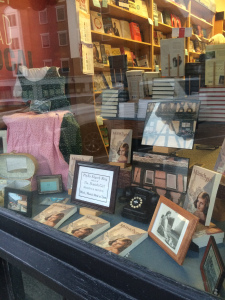 My thanks to editor Rebecca Skane of Portsmouth Review for the interview she offered me this month.
My thanks to editor Rebecca Skane of Portsmouth Review for the interview she offered me this month.
And my gratitude to Stef Kiper at Water Street Bookstore in Exeter, NH, for including me in this month’s visiting-authors calendar, AND creating such a wonderful window display for The Munch Girl!
 If you’re near enough on the evening of Wednesday, March 23, come by and say hello and hear a little of the story behind the book.
If you’re near enough on the evening of Wednesday, March 23, come by and say hello and hear a little of the story behind the book.
Meanwhile, here, are a few questions from Portsmouth Review:
 What is the most critical piece of advice you would give to new authors?
What is the most critical piece of advice you would give to new authors?
Be unceasingly willing to persevere, learn, and come to understand just what part of your inner blueprint your work most truly wants to represent, and how the process itself brings you closer to that reality, i.e. creativity and spirit want to shape each other, and us.
Coming up with a title can be difficult. Tell me how you came up with yours.
It came once I’d seen the rendering of the book’s cover, and I couldn’t believe I hadn’t understood earlier what it had to be. Munich’s the place that unites the lives of all three main characters, instantly conveys the story’s German atmosphere, and was, at heart, the way Eva Braun saw herself – reflected in some of her very last words: a Munich girl. The subtitle helped round out the story’s deeper themes: A Novel of the Legacies that Outlast War.
Find the interview here: http://portsmouthreview.com/interview-local-author-phyllis-edgerly-ring/


March 15, 2016
Art and the elixir of life
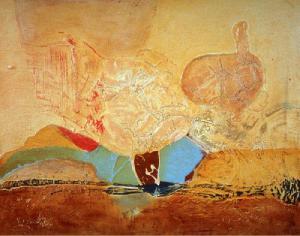
Landscape 2 by artist Honnie Goode
It’s an honor to have an excerpt from my novel, The Munich Girl, included as the fiction offering of the latest issue of the arts journal, e*lix*ir.
The publication is designed to “showcase the work of artists who find inspiration in the Bahá’í revelation and to foster an aesthetic whose key ingredient is the conviction that the mission of art is to inspire, transform, and uplift individuals and communities.”
Editor Sandra Hutchison offers soul-stirring reflection in the issue’s editorial, “Art at the Intersection of the Worlds.”
The words from ‘Abdu’l-Bahá that she includes from The Promulgation of Universal Peace embody this theme, and the intent behind the creative efforts that many of us attempt:
“For material civilization is like unto a beautiful body, and spiritual civilization is like unto the spirit of life. If that wondrous spirit of life enters this beautiful body, the body will become a channel for the distribution and development of the perfections of humanity.”

Photo: Wertheim.de
Sandra writes, “Through the experience of creating art, the artist becomes acquainted with that invisible plane of existence that is just as real and necessary to our survival as the earth on which we plant our feet.”
It’s this sort of inner vision that I attempt to describe in the artist’s statement I was invited to provide:
“I seek to uncover the noblest possibilities in the human heart and to discover how history, culture, spirituality, and the natural world shape the journey of the human family.
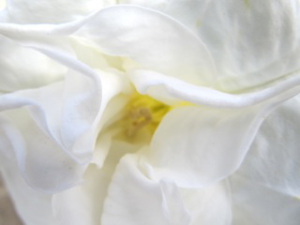
Image: Diane Kirkup
The vision of the future that the Writings of Bahá’u’lláh evoke, is one of prosperity and hope, so as a writer of stories, I am alert to every evidence of these I can find, even, perhaps especially, when circumstances may appear dark or chaotic.
More than any other kind of writing I’ve done, book-length fiction requires an absorption that leads me to what must be realized in a story. For me, this is an utterly spiritual experience–to weave together mysterious unseen threads into a reality that the emotions and spirit can recognize as true.
To encounter truth in this way is an experience that transcends this earthly life.”
Find the latest issue of e*lix*ir here: http://www.elixir-journal.org/issue2/


March 12, 2016
Brownie points
I am delighted that The Munich Girl is featured this month in the kick-off of book reviewer Anne’s Indie Month at her highly creative Inked Brownies blog.
In reflecting about the novel, Anne touched on one of the story’s main thematic intentions, quoting thoughts of character Eva Braun’s as she keeps her friend company on a train during one very dark night of the soul: 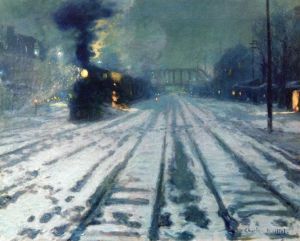
“One could look at another’s life and judge or envy what it seemed to show. But things were almost always more complex than they appeared.”
I had a great time responding to her thoughtful questions, two of which I’ll share here, then link to her outstanding post–more of an article, really–for which I express my grateful appreciation.
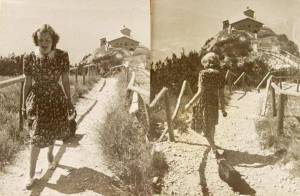 Inked Brownies: Why did you choose to let the present part of the story take place in 1995?
Inked Brownies: Why did you choose to let the present part of the story take place in 1995? PER: This benchmark, 50 years after the end of the war, represents a turning point for humanity, I think. How willing were we, are we, to go back and look more deeply at what had been left behind, unrecognized and unresolved, in that immense, human-initiated catastrophe? But also, the year 1995 is already “historical” in fiction’s terms, because it is about from that point that the technology of the virtual world began to assert itself in human life, rendering a very different human experience in our world today. To the extent that this material advancement isn’t matched by the development of inner-life values and compassionate, united perspective, I think we wreak havoc and suffering still.
 Inked Brownies: Are you going to write another book and, if so, what can we expect of it?
Inked Brownies: Are you going to write another book and, if so, what can we expect of it?PER: Inevitably, my next book is likely to be a memoir-style reflection about where this novel has led me. It is certainly not what I would ever have predicted or expected, and there are experiences that I’m probably never going to be able to understand, let alone explain. Many of them relate to the lives of the two other individuals in the story who actually lived (and died) in wartime Germany and made very courageous contributions: writer and artist Erich Mühsam and a Jesuit priest, Father Alfred Delp, who aided the Resistance.
Find Anne’s Inked Brownies post (with some pretty curious illustrations and embellishments) at:
http://inkedbrownies.com/2016/03/08/the-munich-girl-a-novel-by-phyllis-edgerly-ring/


March 10, 2016
Walking a path that loves us

Painting: Judy Wright
GLEANINGS FOUND HERE AND THERE:
Wisdom is a creative power that enfolds, encircles, and encompasses the cosmos, quickening it from within creation.
Wisdom is only realized in and through creation, through our cooperation with the divine power available to us in our creative work.
~ Christine Valters Painter (from Creative Flourishing in the Heart of the Desert: A Self-Study Online Retreat with Hildegard of Bingen)
The more you work with your dreams and your unconscious, and honor it, the more you understand it and it understands you.

Photo: Kathy Gilman
When you develop a relationship with your psyche this way, you begin to carry that energy into life and your relationships.
~ Marion Woodman

Nature-inspired art / https://www.etsy.com/shop/DKirkupDesigns
I think being motivated is naturally built-in to one’s vocation. When you walk a path you love, there is something deeper calling you forward on it, like a beautiful question that can never be answered. In the hard times you may turn away from it, but a part of you knows you’ll always turn back because you can’t give up on what you love, even if you try. In the end, I think the real work is not finding inspiration, but attuning to it.
So when I’m not feeling inspired, I know somewhere along the line I’ve been distancing myself from life. This feeling of being separate from “something greater” is usually brought about by numbing habits; so I’ll take myself to the forest and let my senses be reawoken and warmed back to life. I think pleasure is really the gateway to feeling connected and inspired.
~ Dreamwork with Toko-pa


March 7, 2016
The legacies that outlast
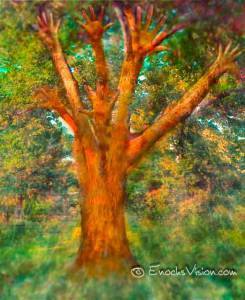
Image: Cary Enoch / https://enochsvision.com/
In these times when writing and publishing a book can feel like pinning a leaf in a forest, book bloggers are some of a writer’s very kindest friends.
I’m grateful to reviewer Courtney of Incessant Bookworm blog for her insightful response to The Munich Girl:
“Ring incorporates some unique twists that in the end wind into my believing that everything happens for a reason and what may seem random and irrelevant becomes groundbreaking.
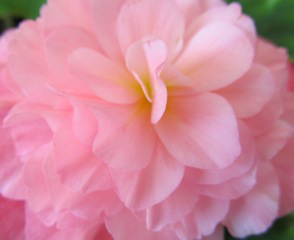
Photo: Diane Kirkup
“Two moving passages from the story encompass the main take away for me – coincidentally on the same page – and have a strong and clear parallel to the subtitle:
‘Sometimes, we must outlast even what seems worse than we have imagined, because we believe in the things that are good. So that there can be good things again.’
‘I’m realizing now that war leaves so many different kinds of legacies … Some stay buried. Many are part-truths that become legends or myths. Many others are what we know are there but try to deny or ignore.’ ”
Find the review from Courtney’s Incessant Bookworm Blog here at Goodreads:
https://www.goodreads.com/review/show/1566157867
The Munich Girl: A Novel of the Legacies that Outlast War
continues at Stacie Theis’s Beach Bound Books Blog:


March 4, 2016
In a season of restraint

Photo: Wertheim.de
The word “relinquish” has a special attraction for me whenever it appears in prayers and passages of inspiration. In a time of fasting that has become a reprieve, as well as a “season of restraint,” I begin to notice how interrelated the experiences of restraint and relinquishment can be.
A description for restraint that really appeals to me is “self-possession.” Might that be true possession, of one’s truest self?
While restraint seems like a condition that arises from my taking responsibility for my self and actions, “relinquish” means to surrender or hand over. This almost makes these two sound like some sort of opposites—or maybe complementary partners
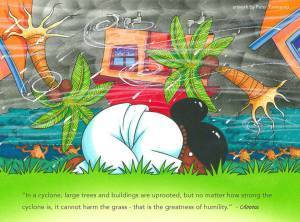 Surrender and handing over can be very tall orders. But there are two other synonyms that offer accessible first steps in that process: “let go by” and “let pass.”
Surrender and handing over can be very tall orders. But there are two other synonyms that offer accessible first steps in that process: “let go by” and “let pass.”
Relinquishment offers an invitation to freedom—from the erroneous notions and occasional tyranny of my own thoughts. Not the thoughts I experience when engaged in focused, constructive intent, but the ones that spin round and round, either in the past or in the presumed future. They usually suggest unhelpful things and never, ever, take me anywhere new. “Noise,” some might call them.
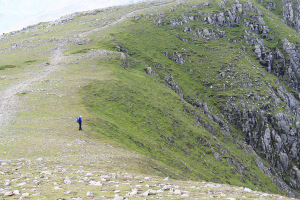
Photo: Kathy Gilman
Something well worth restraining or moderating.
How? By choosing what meditators know is an always-available option: letting thoughts go by as they arise, like the clouds, the weather. Not identifying with them, or defining myself by them. Remembering that Reality is so very much greater than anything those thoughts are trying to reinforce; those opinions of which they’re so certain.
Choosing instead to spend my time, and attention, in what inspires and uplifts me—claiming back the resources that scattered, frenzied, fired-up thoughts often consume and using them for something better.
 In a book called The Seven Valleys, Bahá’u’lláh wrote, “A servant is drawn unto Me in prayer until I answer him; and when I have answered him, I become the ear wherewith he heareth … ”
In a book called The Seven Valleys, Bahá’u’lláh wrote, “A servant is drawn unto Me in prayer until I answer him; and when I have answered him, I become the ear wherewith he heareth … ”
When I relinquish something lesser for something greater, I seem to catch the sweet notes of that greater kind of hearing. As insistent as my thoughts can be, when I’m willing to relinquish them, what appears in place of them feels positively eternal. And always life-giving.





